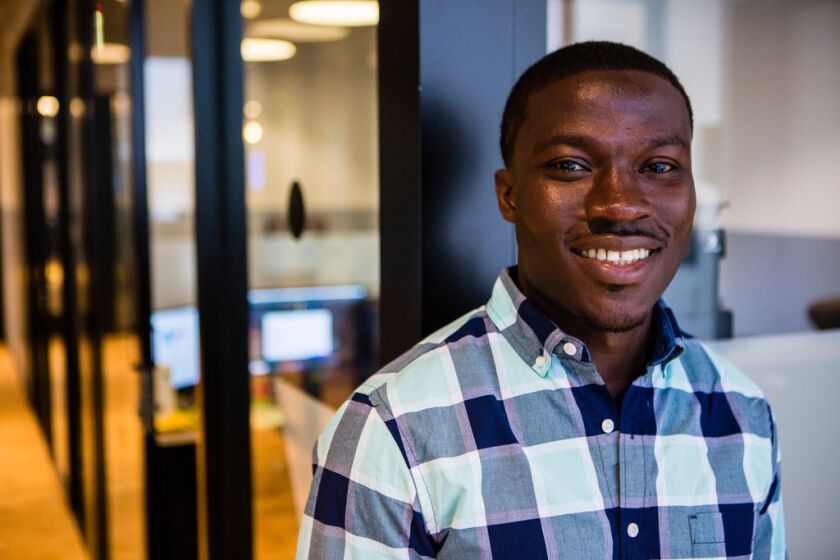It’s the diversity issue that almost no one talks about: underrepresentation in medicine’s clinical trials.
When Kwaku Owusu attended a Food and Drug Administration conference last year to speak about medical device safety, he heard a statistic at another panel that shocked him: Minorities represent nearly 40 percent of the U.S. population, but an average of fewer than 5 percent of participants in studies of the effects of medicines and treatments are African American. And the number of Latinos is also low.
That imbalance is a massive problem because people of color are disproportionately affected by medical conditions including cardiovascular disease, hypertension and diabetes. African Americans, for instance, are 80 percent more likely to have diabetes and 30 percent more likely to die from heart disease than non-Hispanic whites. So why didn’t clinical trials try to reflect the diversity of America?
“The minute I heard those numbers, it just hit me that this is a problem that I want to solve,” Owusu says. “When you’re making a drug, if you don’t study enough different people, you’re literally excluding those types of data points, and your data is so narrow that it’s not going to work well for 40 percent of the population.”
That’s when Owusu switched gears from health care consulting and finance. He began to build a start-up to address the racial gap in clinical testing.
The company, Drugviu, is an online platform that encourages Asian Americans, blacks, Latinos and Native Americans to review their experiences taking specific medications. Owusu and co-founder Melanie Igwe launched the website in March and work out of the MATTER health care startup incubator in the Merchandise Mart.
It’s small now, but Drugviu’s goal is to build the biggest possible database of medicine reviews by communities of color and to use that information to educate people of color about the medicines they take and help uncover side effects that might emerge within specific minority groups by comparing the self-reports to data from the FDA, the federal Centers for Disease Control and Prevention and other sources.
For quality control, Owusu and Igwe have attempted to collect offline data at churches, community centers, barbershops and other businesses on the South Side and the West Side.
“We said, ‘Are you an African American, or you are Hispanic American and taking a medication like, for instance, Lipitor? Can you tell us how Lipitor makes you feel? Did you have side effects?’” Owusu says. “I literally went to Bronzeville and put up flyers telling people to go to Drugiviu and leave their reviews.”
The legwork appears to be paying off. More than 10,000 people have visited the site in its first few months without any marketing, according to Owusu. In July, Drugviu was one of 10 companies accepted into TechStars 2019 Impact, a nationwide program designed to help start-ups grow and get more funding. Owusu is trying to raise $2.5 million to build the company.
It’s an ambitious aim for a 28-year-old immigrant from Ghana who took classes at Harvard. After getting an MBA from the University of Rochester, he went to work for Xerox and Hewlett-Packard in finance roles, then as a health care consultant and product manager for hospitals.
In 2017, Owusu also founded Ilerasoft — a start-up providing a kind of credit score for medical equipment to help hospitals make better purchasing decisions. Now, he’s working to change how the world looks at medicine.
“Even though we’re all Homo sapiens, and biologically we’re all human, we do have differences,” he says. “What really drives me is that I want a world where the medication that I take or that my little brother or my grandma or my auntie takes is just as effective as it is for somebody else who happens to be white.”






